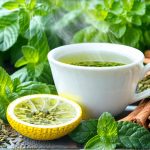The subtle shifts in our bodies throughout the day often go unnoticed, yet they profoundly impact our overall well-being. One frequently overlooked indicator of internal balance is urine clarity – a reflection of hydration levels, kidney function, and even dietary choices. Many people address this with copious amounts of water, which is certainly vital, but herbal teas offer a more nuanced approach to supporting healthy urinary function and achieving that desirable midday clarity. Beyond simple hydration, specific herbs possess diuretic properties, support kidney health, and can gently encourage the body’s natural detoxification processes, all contributing to a clearer, more balanced internal environment. It’s about working with your body rather than simply forcing it into compliance.
Traditional herbalism has long recognized the power of plants to support various bodily systems, including the urinary tract. However, many commonly consumed teas – black tea, green tea, even some fruit infusions – don’t necessarily prioritize this aspect. This article will explore several underrated herbal teas that offer unique benefits for supporting midday urine clarity and overall balance, moving beyond basic hydration and delving into the specific properties of these often-overlooked botanical allies. We’ll focus on options that are readily available, relatively mild in flavor (making them easier to incorporate into daily routines), and supported by traditional use – all while emphasizing a holistic approach to well-being.
Dandelion Root & Leaf Tea: A Gentle Detoxifier
Dandelion, often dismissed as a weed, is a powerhouse of nutrients and medicinal properties. Both the root and leaf have distinct roles in supporting urinary health. Dandelion root acts primarily as a gentle diuretic, encouraging increased urine production without the harshness sometimes associated with pharmaceutical diuretics. This helps flush out toxins and supports kidney function. The root also contains compounds that support liver health, which is crucial for overall detoxification. Dandelion leaf, on the other hand, is rich in potassium, a mineral often depleted when diuretic herbs are used; it essentially balances the effects of the root, preventing electrolyte imbalances.
The combined effect of dandelion root and leaf tea can lead to increased urine clarity by promoting efficient waste removal. It’s important to note that while dandelion is generally safe for most people, those with kidney problems or taking diuretics should consult a healthcare professional before incorporating it into their routine. The taste can be somewhat earthy – many find blending it with other herbs like burdock root or chamomile improves palatability.
Dandelion tea isn’t just about urine clarity; it’s about supporting the body’s natural detoxification pathways. Think of it as giving your kidneys a gentle helping hand, rather than aggressively forcing them to work harder. A typical preparation involves 1-2 teaspoons of dried dandelion root and leaf blend per cup of hot water, steeped for 5-10 minutes. – This allows for optimal extraction of the beneficial compounds. Consider incorporating natural schedules alongside your tea routine to maximize benefits.
Corn Silk Tea: Nature’s Urinary Tract Soother
Corn silk, the silky strands found inside an ear of corn, is another often-overlooked herbal remedy with significant benefits for urinary health. Traditionally used by Native American cultures to address various urinary issues, corn silk possesses mild diuretic properties and acts as a demulcent – meaning it soothes irritated tissues. This makes it particularly helpful for supporting the overall health of the urinary tract and promoting comfortable urine flow. Unlike some stronger diuretics, corn silk tends to be very gentle on the body, making it an excellent choice for daily support.
Corn silk tea doesn’t necessarily increase urine volume as much as dandelion does; instead, it focuses on improving the quality and comfort of urination. The compounds within corn silk can help reduce inflammation in the urinary tract and promote a healthy bladder function – leading to clearer, more comfortable results. It’s often recommended for individuals experiencing minor discomfort or irritation, but again, it’s not intended as a treatment for serious medical conditions.
Preparing corn silk tea is relatively straightforward: use 1-2 tablespoons of dried corn silk per cup of hot water and steep for 10-15 minutes. The resulting tea has a mild, slightly sweet flavor that many find pleasant. You can combine it with other calming herbs like chamomile or lemon balm to enhance its relaxing properties. For further support in the evenings, explore structured evening routines .
Parsley Tea: A Natural Diuretic Boost
Parsley, commonly used as a garnish, is surprisingly potent in supporting kidney function and urine clarity. It’s a natural diuretic due to its high water content and the presence of compounds like apigenin and luteolin, which encourage increased fluid excretion. While parsley isn’t as strong as some other diuretics, it offers a gentle boost that can be easily incorporated into your daily routine.
- Parsley tea is particularly beneficial for individuals who experience mild bloating or water retention.
- It supports healthy kidney function by promoting the flushing of toxins and waste products.
- Regular consumption (in moderation) can contribute to clearer urine and a more balanced internal environment.
A simple parsley tea can be made by steeping 1-2 tablespoons of fresh, chopped parsley in hot water for 5-10 minutes. The flavor is somewhat herbaceous, so combining it with lemon or ginger can improve its taste. Remember that excessive parsley consumption isn’t recommended for individuals with kidney problems – moderation is key.
Birch Leaf Tea: A Traditional Kidney Supporter
Birch leaf tea has a long history of use in traditional European herbalism for supporting kidney health and promoting detoxification. It’s a natural diuretic, similar to dandelion root, but tends to be more potent. This means it can effectively increase urine production, helping to flush out toxins and reduce fluid retention. However, due to its strength, birch leaf tea should be used with caution and isn’t recommended for long-term daily use without professional guidance.
Birch leaf contains compounds that help neutralize uric acid, which can contribute to kidney stone formation – making it potentially beneficial for individuals prone to this condition (though it’s not a substitute for medical treatment). It also supports healthy kidney function by promoting efficient waste removal and reducing inflammation. A typical preparation involves 1 teaspoon of dried birch leaf per cup of hot water, steeped for 5-7 minutes.
It’s crucial to be mindful of potential side effects when using birch leaf tea – excessive use can lead to dehydration or electrolyte imbalances. Individuals with kidney problems, heart conditions, or taking diuretics should avoid it altogether. Always start with a small amount and monitor your body’s response. Remember to also consider fresh air micro-breaks for overall kidney health.
Hibiscus Tea: Beyond the Beautiful Color
Hibiscus tea, known for its vibrant red color and tart flavor, offers more than just visual appeal. While often enjoyed as a refreshing beverage, hibiscus possesses mild diuretic properties that can contribute to urine clarity. It also contains antioxidants which support overall health and wellbeing. The gentle diuretic effect of hibiscus helps promote fluid balance and encourages the elimination of waste products through urination.
- Hibiscus tea is rich in Vitamin C and other beneficial compounds.
- It’s a naturally caffeine-free alternative to many popular teas.
- Regular consumption can contribute to improved hydration and kidney health.
Hibiscus tea is easily prepared by steeping 1-2 teaspoons of dried hibiscus flowers in hot water for 5-10 minutes. The resulting tea has a distinctive tart flavor that can be balanced with honey or other sweeteners if desired. It’s generally well-tolerated, but individuals with low blood pressure should exercise caution as hibiscus may have mild hypotensive effects. You might also find herbal chews a refreshing complement to your routine.
It’s important to reiterate: these herbal teas are supportive tools and not replacements for proper medical care. If you experience persistent urinary issues or concerns about your kidney health, please consult a healthcare professional. The information provided here is intended for general knowledge and informational purposes only, and does not constitute medical advice. Listen to your body, start with small amounts, and adjust your consumption based on your individual needs and tolerance. Ultimately, achieving urine clarity and balance is part of a larger picture – one that encompasses healthy hydration, mindful nutrition, and a holistic approach to well-being.





















